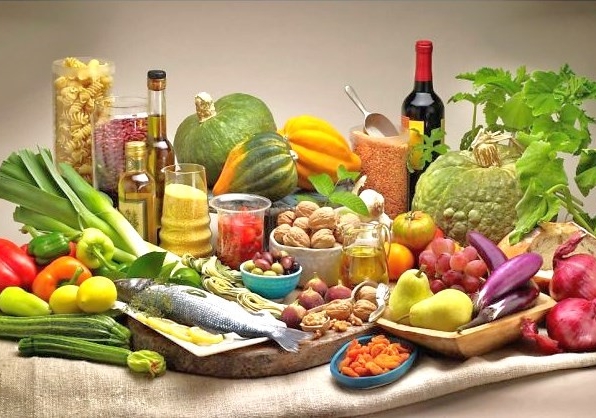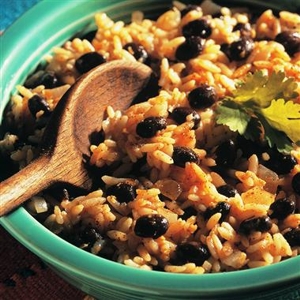Futurists see problems with coming veggie diets. As healthy as they are in some ways, they may be unbalanced in others. And downright dangerous in still others. It’s all about too much or too little of good things…
 The famous Mediterranean Diet: About to become a ‘lost dietary masterpiece’?
The famous Mediterranean Diet: About to become a ‘lost dietary masterpiece’?
The problem in a nutshell
Well, okay. Let’s start with nuts. Dietary experts tell us to eat more nuts and seeds, which provide bountiful Omega-3 bearing oils. But that’s expensive and who knows how well nut trees and the specific seed crops we’re talking about here survive and adapt to the worsening global warming crisis.
And those seed crops… Agronomists are already predicting lower crop yields as a result of higher temperatures. The Chinese, especially – whose population relies so heavily on rice – are already working as fast as they can on developing new varieties of Rice that can produce higher yields in spite of climatic challenges; even one that can grow in brackish water.
What are we in the West doing about developing new strains of our staples: wheat, oats, barley, corn and so on? And where are we at with protecting ancient grains, which we’re told are so healthful?
Veggie proteins also affected
Vegetable protein sources such as soy, lentils peas and beans are going to be more important that ever before in our diets. Is anybody keeping track of how climate warming will impact them?
We already know that some mainstream veggie proteins don’t provide complete protein complexes to support human health and well being. We know how to supplement grains with peas and beans to achieve a balance (see photo, top of page). Are we prepared to jump in and develop new formulae if the nutrition content of these basic veggie protein sources should change or lose nutritional potency as the climate gets hotter?
Other veggie nutrition hot buttons
We also know that vegetarians – and vegans especially – risk dietary shortages of some basic, essential nutritional elements. Common veggie products don’t provide certain vital substances, or enough of them, to maintain a healthy human balance. We are prescribing supplements to manage that situation. But are we watching how these essential nutrients may be changing with climatic warming?
What about the apparently unstoppable rise in food prices? Time to vote: Do you think fresh produce prices will ever stop rising beyond the point where the masses can afford to eat enough of them to maintain their health? If prices do plateau – starting late next year if the experts are correct – will they ever come down again? If not to the levels they used to sell at, but at least to levels where they become even marginally affordable to the masses again?
Some practical musings
All the ‘what-ifs’ tossed onto the dinner debate table deserve our serious contemplation; perhaps even calls on professionals to get off their duffs and act now, rather than having to run to catch up on these issues later.
Will known classics such as the vaunted Mediterranean Diet become museum pieces, or even history book phenomenae, because we can’t afford to eat all the really good stuff in it? A ‘lost masterpiece’, as the art experts call works destroyed by floods or fires?
And that presupposes that all the good stuff in today’s super-diets can survive (at a reasonable cost) into the future, past the climatic warming ‘deadline’ of 2050.
Muse on that…
~ Maggie J.

